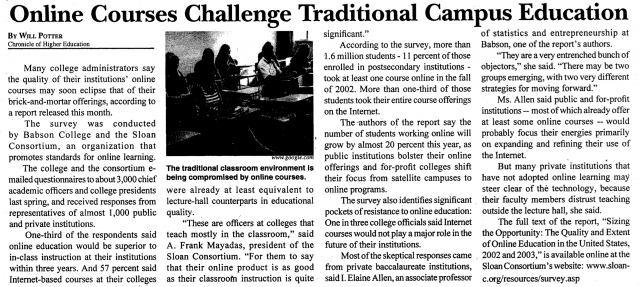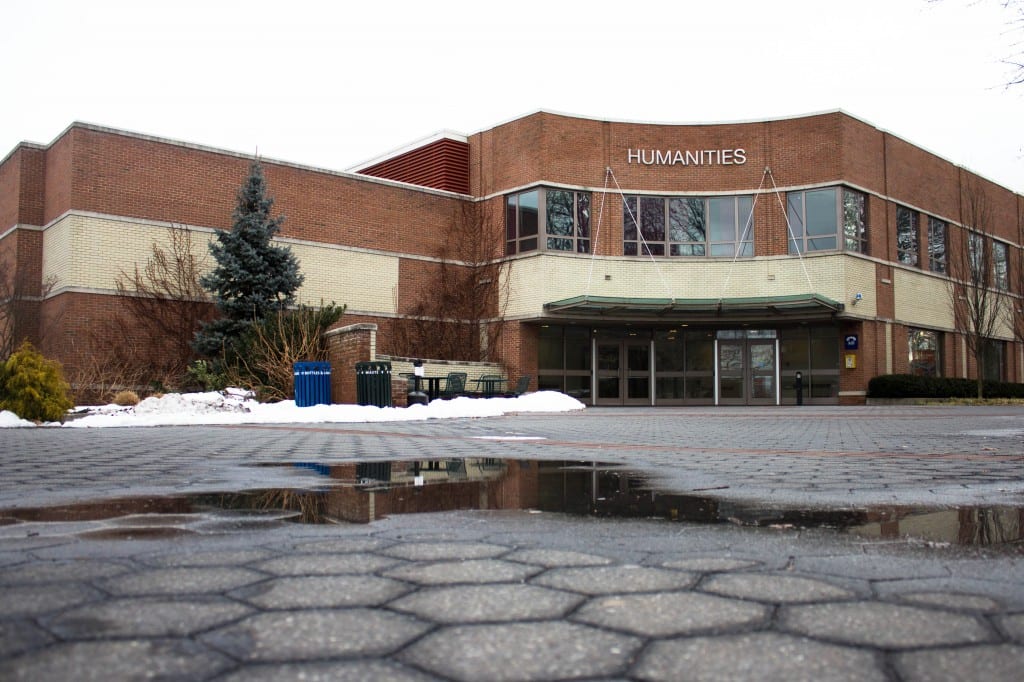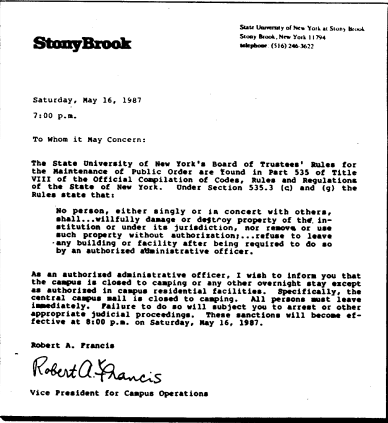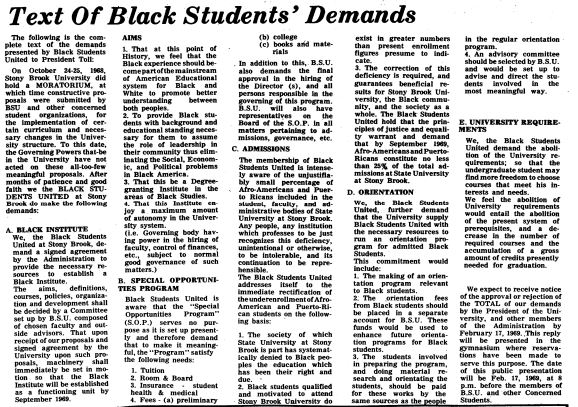
Originally published on Sept. 22, 2003
Many college administrators say the quality of their institutions’ online courses may soon eclipse that of their brick-and-mortar offerings, according to a report released this month.
The survey was conducted by Babson College and the Sloan Consortium, an organization that promotes standards for online learning.
The college and the consortium e-mailed questionnaires to about 3,000 chief academic officers and college presidents last spring, and received responses from representatives of almost 1,000 public and private institutions.
One-third of the respondents said online education would be superior to in-class instruction at their institutions within three years. And 57 percent said Internet-based courses at their colleges were already at least equivalent to lecture-hall counterparts in educational quality.
“These are officers at colleges that teach mostly in the classroom,” said A. Frank Mayadas, president of the Sloan Consortium. “For them to say that their online product is as good as their classroom instruction is quite significant.”
According to the survey, more than 1.6 million students – 11 percent of those enrolled in postsecondary institutions – took at least one course online in the fall of 2002. More than one-third of those students took their entire course offerings on the Internet.
The authors of the report say the number of students working online will grow by almost 20 percent this year, as public institutions bolster their online offerings and for-profit colleges shift their focus from satellite campuses to online programs.
The survey also identifies significant pockets of resistance to online education: One in three college officials said Internet courses would not play a major role in the future of their institutions.
Most of the skeptical responses came from private baccalaureate institutions, said I. Elain Allen, an associate professor of statistics and entrepreneurship at Babson, one of the report’s authors.
“They are a very entrenched bunch of objectors,” she said. “There may be two groups emerging, with two very different strategies for moving forward.”
Ms. Allen said public and for-profit institutions — most of which already offer at least some online courses — would probably focus their energies primarily on expanding and refining their use of the Internet.
But many private institutions that have not adopted online learning may steer clear of the technology, because their faculty members distrust teaching outside the lecture hall, she said.
The full text of the report, “Sizing the Opportunity: The Quality and Extent of Online Education in the United States, 2002 and 2003,” is available online at the Sloan Consortium’s website: www.sloan-c.org/resources/survey.asp













